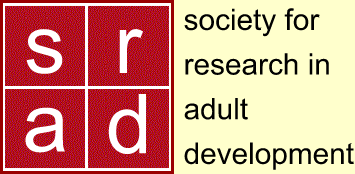Lesson 2: The Study of Adult Development
Attention
Many researchers are interested in adult development as our population grows older. There is the Society for Research in Adult Development and an entire division of the American Psychological Association, Division 20: Adult Development and Aging
Learning Outcomes
Upon completion of this lesson's material, students will be able to:
- Identify personal perspectives on old age and the role that the elderly play in our lives.
Teaching
Read Chapter 1 in Vaillant
This chapter introduces you to the "Study of Adult Development" conducted at Harvard University.
According to Vaillant, the elderly are less depressed than the general population and the majority suffer little incapacitating illness before the one that comes along and kills them. How does this mesh with your own perspectives of the elderly?
"Life is full of misery, loneliness, and suffering - and it's all over much too soon." -Woody Allen
"Don't stop having fun when you get older because you will get older when you stop having fun." -Unknown author
In this first chapter we are introduced to Mr. Pirelli. According to his childhood biography, we would predict that he would not have turned out as well as he did. Early environmental circumstances play a role in our lives, but they don't form destiny. This concept is the resiliency of an individual. Resiliency is the ability to recover readily from illness, depression, adversity, or the like; buoyancy (Dicitonary.com).
Consider the following list of findings:
- It is not the bad things that happen to us that doom us; it is the good people that happen to us at any age that facilitate enjoyable old age.
- Healing relationships are facilitated by a capacity for gratitude, for forgiveness, and for taking people inside.
- A good marriage at age 50 predicted positive aging at 80. But, surprisingly, low cholesterol at 50 did not.
- Alcohol abuse - unrelated to unhappy childhood - consistently predicted unsuccessful aging, in part because alcoholism damaged future social supports.
- Learning to play and create after retirement and learning to gain younger friends, as we lose older ones, adds more to life's enjoyment than retirement income.
- Objective good physical health was less important to successful aging than was subjective health.
It is very apparent in this first chapter, how much Vaillant values the details of an individual's story. So much of psychology is based on statistics (quantitative analysis to provide for predictions and models). The truth may be that the "devil" (and possibly the "angel") is "in the details".
This assignment has you creating a simple family tree using the Ancestry App. You can save your tree by creating a free account. Without any in app purchases it provides with you additional information about your family based on public records.
Use the app to build a simple family tree. Contemplate what you do or do not know about the history of your ancestors and incorporate that into your discussion comments for this week. |
Assessment
Possible Class Discussion
On p. 4 of Vaillant you can read the following sentence: "Old age is like a minefield; if you see footprints leading to the other side, step in them."
Reflect on what this means to you, your relationship with the older people in your life, and what it means to you as a mental health worker. Incorporate what your experience was when you built your family tree using the Ancestry app.


